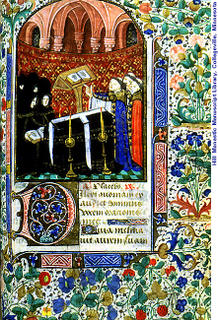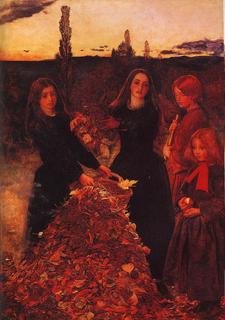If art is warfare, then praise would be the most devastating weapon in her arsenal. What other weapon is inhabited by God? (Ps 22:3 "Thou art holy, O thou that inhabitest the praises of Israel.") What other brings down city walls (Joshua 6), busts up prisons (Acts 16:25 ff) and scatters armies without a blow (2Chron. 20)? The cherubim who guard the throne of God, wall it around with chants of "Holy, holy, holy, Lord God Almighty, which was, and is, and is to come!" (Rev 4:8)
Where are the strong young men who will learn to wield this weapon with skill and finesse?
We have become such a limp-wristed bunch! Gone are the days when strong men sang poetry in public in order to brace up the troops for battle. Gone are the warriors who knew they would prevail if the bagpipes led them into the teeth of the fray. And it should come as no surprize to us, that praise in worship is no longer percieved as a manly thing.
Our sons will conquer by praise as we train them to think of it as a sort of swordplay. They already know how a put-down cuts. We must show them the true use of the tongue's cutting edge. Every word of worship and praise to God a cut to His enemies. Every song a death-blow to the despair that characterizes our present age, and a clarion call to rally the juggernaughts of Heaven. Until the accumulated praises raze the strongholds of the evil one, free his prisoners, and scatter his minions in shame and confusion.
In my speech club, we have an exercise we call "heavy-lifting", in which we practice introducing one another with praises. It is the inverse of the put-down, a cut to Satan's enticement to us to use our speech to cut each other. It is the only exercise for which prizes are awarded on the spot. Praise is becomming cool, and more importantly, it is becomming a habit.
This coming holiday season, I will be working to teach my son, who has recently come into his bass voice, to sing the bass lines of the hymns and carols of the season. I hear him flailing around trying to find a line that is comfortable in his new range, and realize that this voice change handicaps young men in praise at this vulnerable stage. Perhaps we can use this as an opportunity to train them to think of praise as their weapon of choice, and to expect to work out on the sparring ground as a regular feature of life.
In mediaeval times, it was a woman's office to gird a young knight with his sword. All around us are men who have forgotten the use of the sword. But while it will necessarily fall to men to perfect the skills of praise in our young men, I hope I will be belting on plenty of swords. I want to see the wicked strongholds fall.





